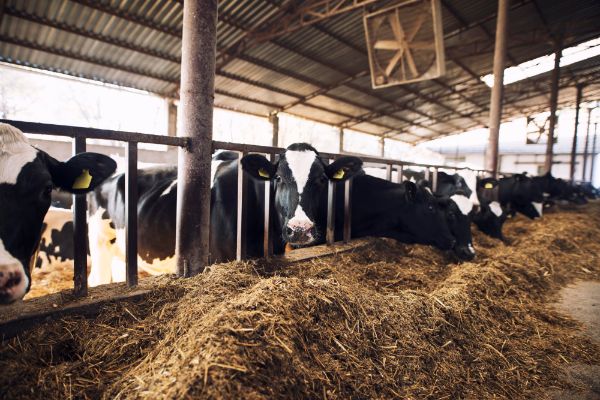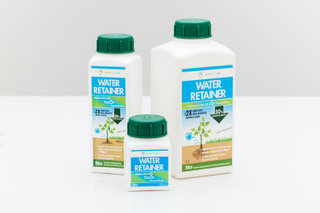Citrus greening is one of the most serious citrus plant diseases in the world. It is also known as Huanglongbing (HLB) or yellow dragon disease. Once a tree is infected, there is no cure. While the disease poses no threat to humans or animals, it has devastated the citrus crops in Asia, Africa, the Arabian Peninsula and Brazil. Citrus greening is now a serious threat to the U.S. citrus industry. Infected trees produce fruit that are green, misshapen and bitter, unsuitable for sale as fresh fruit or for juice. Most infected trees die within a few years.
Citrus greening disease is primarily spread by a tiny insect, the Asian citrus psyllid. No bigger than the head of a pin, the infected insect spreads the disease as it feeds on the leaves and stems of citrus trees. Once the Asian citrus psyllid picks up the disease, it carries it for the rest of its life. Citrus greening is then spread by moving infected plant material, such as potted plants, bud wood and even leaves.
The psyllids develop from an egg through five nymphal stages that look similar, but increase in size after each molt.
Citrus plants infected by the citrus greening bacteria may not show symptoms for years and these symptoms can resemble those of other diseases and nutritional deficiencies. Here’s what to look for:
Blotchy mottling of leaves and leaf yellowing that may appear on a single shoot or branch
In areas of the world affected by citrus greening, the disease has seriously threatened or even wiped out citrus crops. Until a treatment or cure is found, stopping the spread of this deadly disease by halting the movement of plants is our only hope of saving America’s citrus.
Because there is no cure, the only way to protect America’s citrus is to stop the spread of citrus greening disease. Here’s how you can help:
Don’t move citrus out of Florida. Entire state is under quarantine for citrus greening disease and Asian citrus psyllids.
It is illegal to move live citrus plants, plant parts, budwood, or cuttings from Florida. (Note: Citrus fruit cannot be moved from Florida unless USDA has issued a limited permit.)
Don’t risk citrus.The safest approach is simply to not move citrus plants, ship citrus plants, or buy host citrus plants online unless you are absolutely sure the plant is not from an area that is quarantined for either citrus greening disease or Asian citrus psyllids.
If you own citrus plants, inspect regularly for the disease and psyllids. Citrus greening leaf symptoms are unique in that the yellow mottling caused by the disease is not the same on both sides of the leaf. Later symptoms include yellow shoots, small lopsided fruit, and premature fruit drop. The psyllid adults and nymphs are typically found on new shoots, along with eggs, which are often nestled in crevices of unfolded leaves. Twisted and curling shoot tips, sooty mold and white waxy deposits on the leaves are all signs of psyllid damage. It’s especially important to inspect for psyllids during active growth of the plant, or flushing.
If you detect the insect or an infected plant, report it. If you think you’ve found an Asian citrus psyllid or infected citrus plant, you need to act fast. Secure the psyllids in a clear locked sandwich bag, jar or plastic container. Click here for information on reporting in your state, or refer to the Resources tab at the top of this page.
saveourcitrus.org
Citrus greening disease is primarily spread by a tiny insect, the Asian citrus psyllid. No bigger than the head of a pin, the infected insect spreads the disease as it feeds on the leaves and stems of citrus trees. Once the Asian citrus psyllid picks up the disease, it carries it for the rest of its life. Citrus greening is then spread by moving infected plant material, such as potted plants, bud wood and even leaves.
Exclusiv - beneficiati acum de Oferta Speciala de mai jos:
3 culturi profitabile - Goji Merisoare Aronia
Fa-ti propria afacere cultivand trei arbusti miraculosi care te pot imbogati Cine nu a aflat de efectele absolut miraculoase pentru sanatate ale merisorului Dar de cele ale fructelor de Goji sau Aronia Si daca nu ai aflat inca iti spunem noi Aceste fructe mici sunt cotate ca super-alimente fiind unele dintre cele mai puternice...
Oferta Speciala
valabila 48h
valabila 48h
The psyllids develop from an egg through five nymphal stages that look similar, but increase in size after each molt.
Citrus plants infected by the citrus greening bacteria may not show symptoms for years and these symptoms can resemble those of other diseases and nutritional deficiencies. Here’s what to look for:
Blotchy mottling of leaves and leaf yellowing that may appear on a single shoot or branch
In areas of the world affected by citrus greening, the disease has seriously threatened or even wiped out citrus crops. Until a treatment or cure is found, stopping the spread of this deadly disease by halting the movement of plants is our only hope of saving America’s citrus.
Because there is no cure, the only way to protect America’s citrus is to stop the spread of citrus greening disease. Here’s how you can help:
Don’t move citrus out of Florida. Entire state is under quarantine for citrus greening disease and Asian citrus psyllids.
It is illegal to move live citrus plants, plant parts, budwood, or cuttings from Florida. (Note: Citrus fruit cannot be moved from Florida unless USDA has issued a limited permit.)
Don’t risk citrus.The safest approach is simply to not move citrus plants, ship citrus plants, or buy host citrus plants online unless you are absolutely sure the plant is not from an area that is quarantined for either citrus greening disease or Asian citrus psyllids.
If you own citrus plants, inspect regularly for the disease and psyllids. Citrus greening leaf symptoms are unique in that the yellow mottling caused by the disease is not the same on both sides of the leaf. Later symptoms include yellow shoots, small lopsided fruit, and premature fruit drop. The psyllid adults and nymphs are typically found on new shoots, along with eggs, which are often nestled in crevices of unfolded leaves. Twisted and curling shoot tips, sooty mold and white waxy deposits on the leaves are all signs of psyllid damage. It’s especially important to inspect for psyllids during active growth of the plant, or flushing.
If you detect the insect or an infected plant, report it. If you think you’ve found an Asian citrus psyllid or infected citrus plant, you need to act fast. Secure the psyllids in a clear locked sandwich bag, jar or plastic container. Click here for information on reporting in your state, or refer to the Resources tab at the top of this page.
saveourcitrus.org
Autor: AgroRomania.ro
Votati articolul
Nota: 5 din 1 voturi
Urmareste-ne pe Google News





















